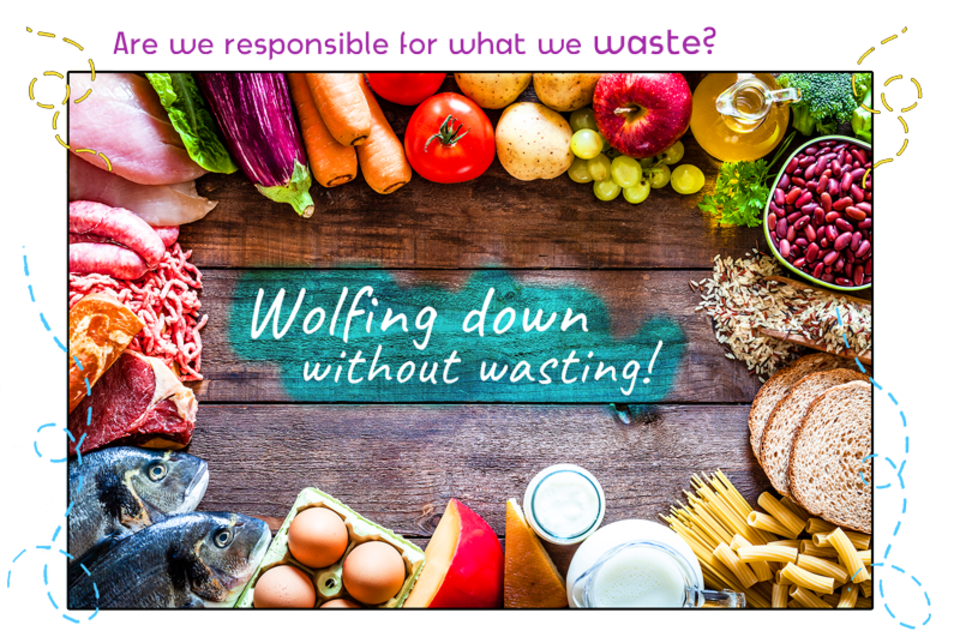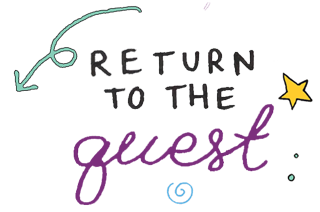
Wolfing down without wasting
| Objective: To squeeze every drop of meaning out of the concept of waste without squandering anything! |
Duration: 30 to 75 minutes
Material:
- A meal that's not prepared yet
- An open-minded family
Instructions:
Prepare the revolution. To revolutionize your meal tonight, suggest that your family eat dinner... without wasting anything! To do this, you'll have to get involved in the preparation of the meal! With the person who's going to be cooking tonight, think together about a meal that can be prepared with as little waste as possible—whether it’s without food scraps or grocery packaging!
Lead the revolution. Prepare the meal with the person you're helping, making sure to waste as little as possible. Using the internet and your imagination, think about how you can use the food scraps that are usually thrown away or reduce the amount of packaging waste you produce so you leave nothing on the plate after dinner! Throughout this activity, take the time to observe how this minimal waste feels.
Tip: Did you know that there are dozens of ways to eat the stem of a broccoli or the tops of carrots, or even to collect vegetable peelings to make a good broth? As for packaging, before you recycle it, try to reuse it: Can you fold the cardboard box so that it can be used as a table mat or even as a slate showing the menu, just like in a restaurant? Why not use a clean can as a pot in which to put utensils? Think about the revolution. Before you leave the table, think together about these questions: Was it difficult to make a whole meal with as little waste as possible? Are we responsible for the resources we waste? In what other ways could creativity help your family waste even less?
...
Bonus: To go even further in this waste reduction initiative, try to have a zero waste day! It can be as simple as starting the day by eating fruit and composting the peel, walking instead of driving to the market to buy food in bulk, making sure to bring reusable containers. You can find hundreds more ideas by typing "zero waste day" into a search engine. At the end of this waste-saving day, think about the following questions together: Should we feel guilty about wasting? Can guilt be useful? Why or why not? What role do emotions play in our ethical decisions? |

| Tricks for tots: Do you really use all your toys? Look in your bedroom or toy box, and ask yourself when was the last time you played with each toy for more than a few minutes. You'll probably find toys that you don’t use very much. Are these mostly your old toys? Or, on the contrary, are you realizing that you keep going back to the same toys, while not playing much with your newer ones? Maybe you could consider giving away the toys that you don't use much. Finally, ask yourself these questions: Would you have a lot less fun if you had half as many toys? Can you have fun with anything as long as you use your imagination? Is it important to have new things? Why or why not? |
| Tips for teens: Wasting seems to be primarily a matter of efficiency. Yet, the word “efficient” is ambiguous. Consider this example: It’s faster to travel somewhere by plane than by train. So in a way, flying is more efficient than taking the train. But if we take into account not just time, but expended resources—traveling one kilometre by train produces an average of 41 grams of carbon dioxide, whereas by plane produces an average of 200 grams—then we reach a different conclusion. So it seems important to take into account all the impacts of a decision. This is what "effective altruism" is all about. Effective altruism is an initiative spearheaded by the philosopher Peter Singer, which aims to efficiently use resources to help as many people as possible, irrespective of the sense of gratification that helping can bring. Two examples of actions recommended by effective altruism include giving money to highly efficient charities that address neglected causes, or choosing a less fulfilling career that can make a big difference in people's lives. Do you think that providing effective and efficient help is more important than feeling good about helping? Should everything be measured to be as efficient as possible? Can efficiency sometimes be dangerous? Why or why not? |
Share your creative reflections by sending them via email.
Include photos of your projects and notes of your thoughts, as well as your first name and your age!


